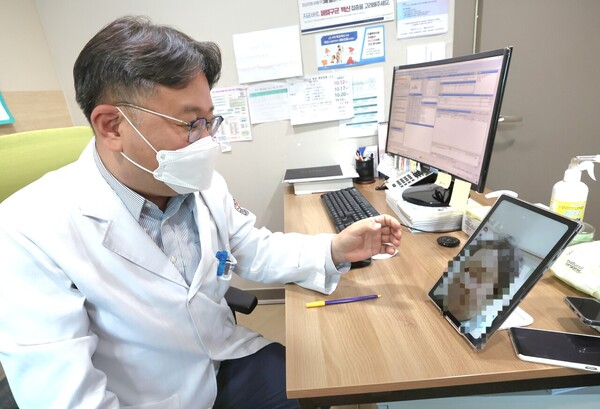
Since June 2023, the National Assembly has faced an impasse over a proposed amendment to the Medical Service Act, intended to authorize telemedicine formally.
A government official expressed concern that the detailed provisions within the four different revision bills might be hindering the legislative process.
An official at the Ministry of Health and Welfare recently met with healthcare reporters to explain the ongoing discussions within the National Assembly regarding telemedicine.
The proposed amendment to the Medical Service Act, aimed at allowing telehealth, has not undergone further deliberation since its initial discussion by a subcommittee of the National Assembly's Health and Welfare Committee in June 2023. Efforts to advance its consideration to the agenda on Dec. 18 also failed.
The bills discussed at the subcommittee’s meeting were four proposed by Rep. Lee Jong-seong from the People Power Party, Rep. Kang Byung-won, Choi Hye-young, and Shin Hyun-young from the Democratic Party, respectively.
Rep. Lee's proposed bill outlines situations in which telemedicine can serve as a supplementary option to traditional face-to-face care. Its scope is restricted to specific patient groups facing challenges in accessing healthcare, including individuals in remote areas, those with infectious diseases, international patients, individuals with disabilities, and those in correctional facilities.
Rep. Kang's proposed amendment sought to grant healthcare providers the authority to utilize medical devices for the remote monitoring of patients with chronic conditions, specifically those assessed to be at low medical risk. This application would primarily involve observational consultations and be confined to providers at the clinic level. The amendment proposed a specific focus on remote monitoring for patients with conditions such as hypertension, diabetes, and arrhythmia, necessitating recurrent visits and long-term care.
Rep. Choi's proposed bill outlines that telemedicine between healthcare providers constitutes a non-face-to-face consultation. It mandates that such consultations should exclusively be reserved for patients facing challenges in accessing medical institutions, such as those residing in islands or remote areas. Additionally, the amendment introduces specific regulations and responsibilities concerning virtual consultations.
Rep. Shin's proposed amendment suggests renaming telemedicine as "non-face-to-face healthcare." It includes a provision requiring clinic-level medical institutions to offer this service to returning patients. Furthermore, the amendment prohibits medical institutions from exclusively operating telemedicine without other modalities.
The health and welfare ministry official voiced concern that the abundance of details within the amendments was hindering the broader discussion on telemedicine.
"It is necessary to institutionalize the telemedicine law by putting only the evidence, securing safety, and the principle that virtual care is an adjunct," he said. "If you try to put too many detailed criteria, the discussion will go nowhere."
There are some concerns about passing the law as the 21st National Assembly is coming to an end, but there are quite a few cases where major bills are usually passed at the end of the parliamentary session, he added.
"I think the opportunity to pass the law is open until April."
The most pressing issue within the telemedicine pilot project is the irregular conduct of related mobile application companies, he went on to say.
Without proper institutionalization, the oversight and management of telemedicine companies become challenging, and merely having guidelines is insufficient, he said.
"Operating a certification system could be a viable approach to enhance supervision."
Related articles
- ‘Industry welcomes telemedicine pilot project but faces lots of homework’
- [Top 10 Healthcare News in 2023 ⑤] Telemedicine pilot project starts without law amendment
- Medical community's backlash grows as government expands telemedicine
- ‘Behind Japan’s telemedicine success is reimbursement policy leading to voluntary participation’
- President Yoon gives a boost to ‘telemedicine’ industry
- Government's telemedicine plan to replace doctors met with skepticism from industry

